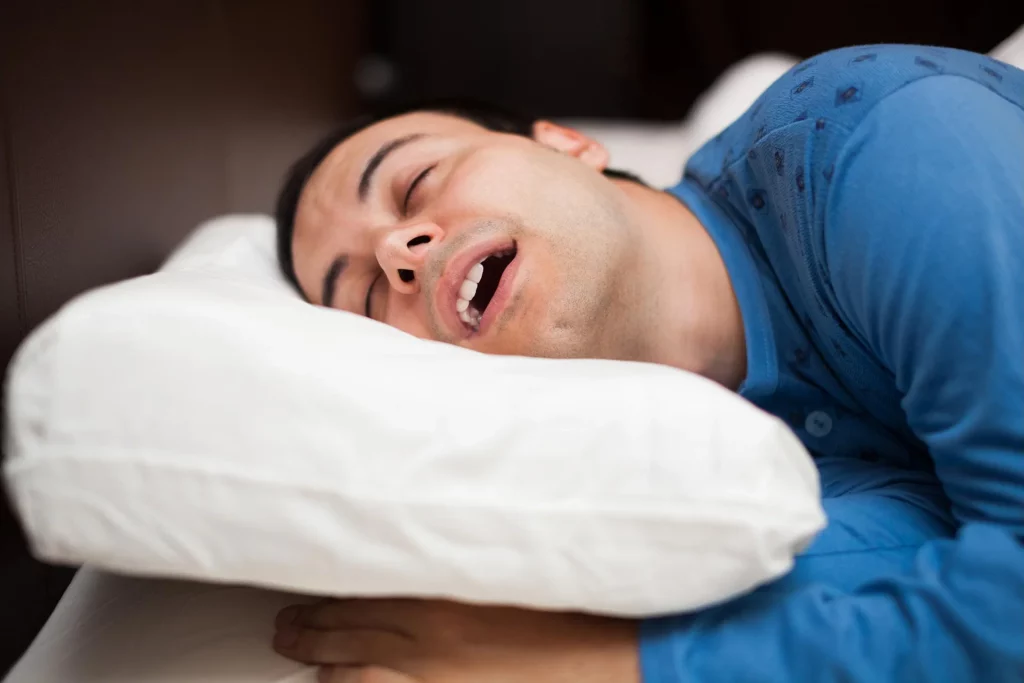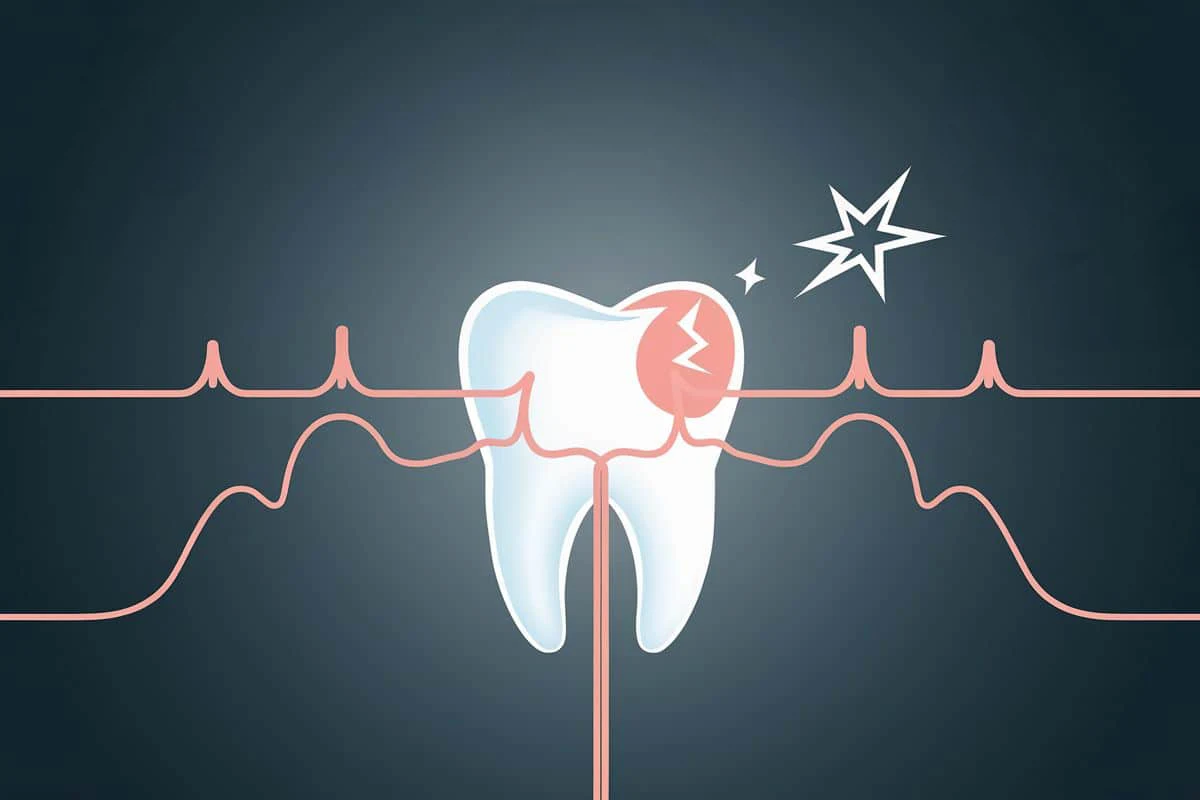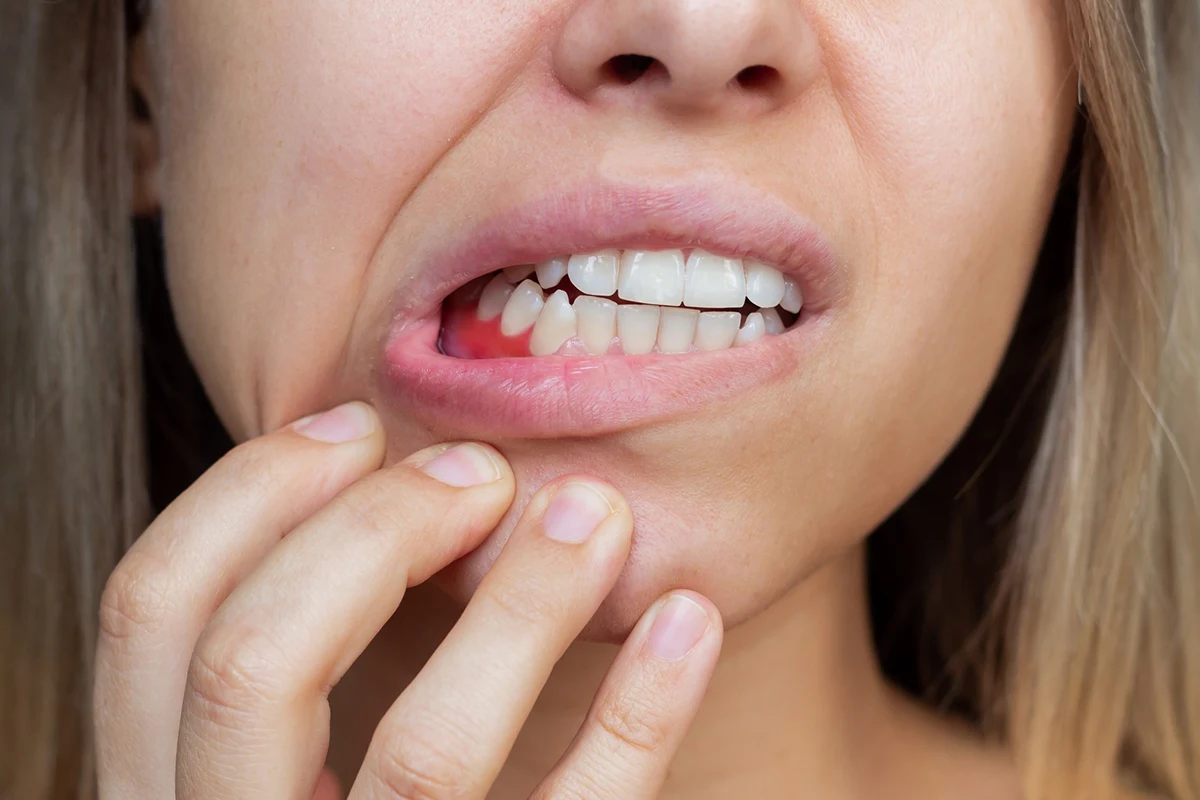Do you snore, wake up gasping for breath, or feel exhausted despite a “full“ night’s sleep? These signs may indicate Obstructive Sleep Apnea (OSA), a common disorder where the airways collapse or become blocked during sleep, causing repeated breathing pauses of at least 10 seconds. Beyond snoring, OSA is associated with an increased risk of cardiovascular diseases, hypertension, stroke, type 2 diabetes, memory disorders, depression, and even Alzheimer’s disease; it also promotes daytime sleepiness that can be dangerous while driving or at work. It is estimated that about 75% of affected individuals are unaware of it.
Why Consider an Oral Appliance Instead of CPAP?
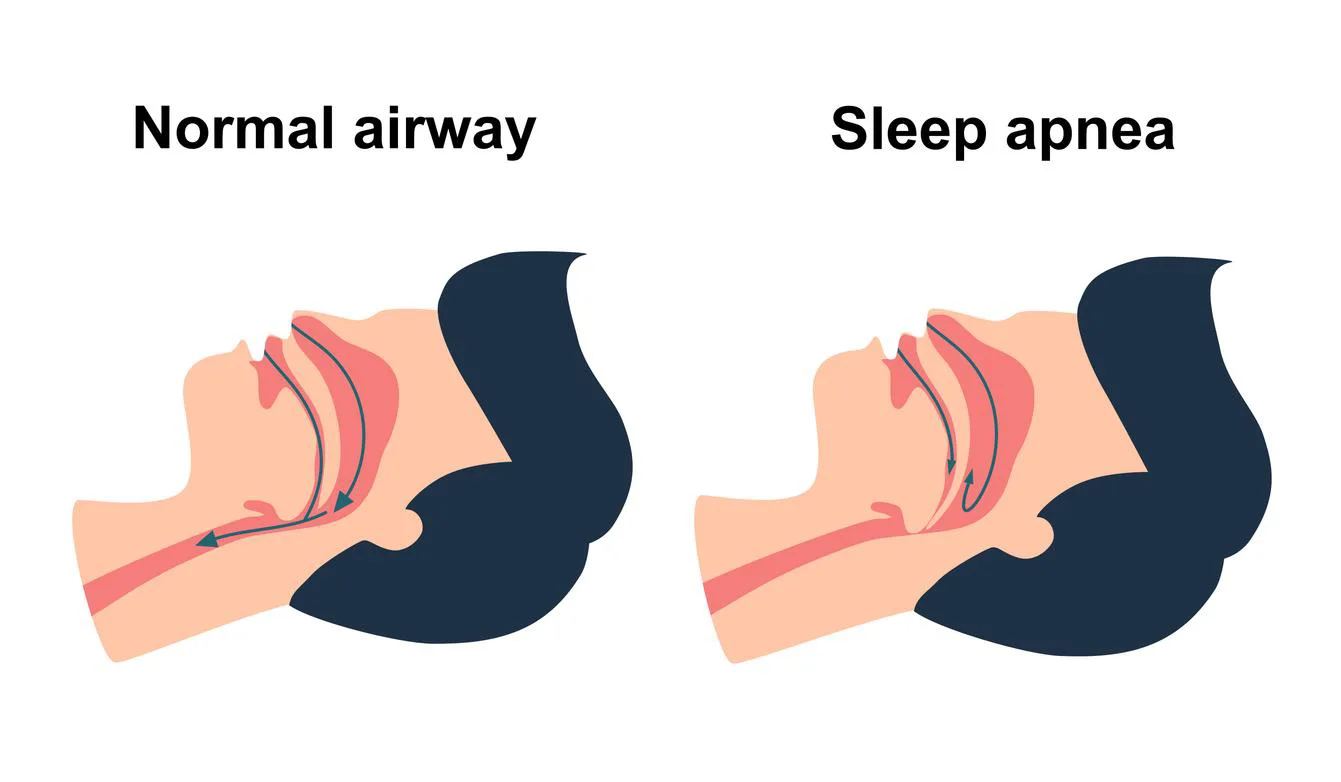
The gold standard treatment remains CPAP, a bedside device that continuously delivers pressurized air via a mask to keep the airways open. It is very effective, but not suitable for everyone: uncomfortable masks with skin irritations, claustrophobia, device noise, and the hassle of transporting bulky equipment when traveling explain why many patients struggle to wear it regularly.
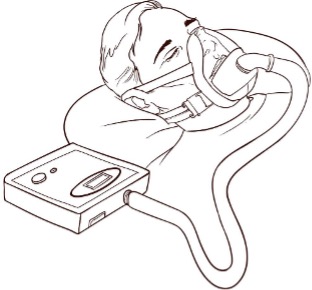
Gold standard treatment for sleep apnea, especially in cases of severe apnea, if well tolerated.
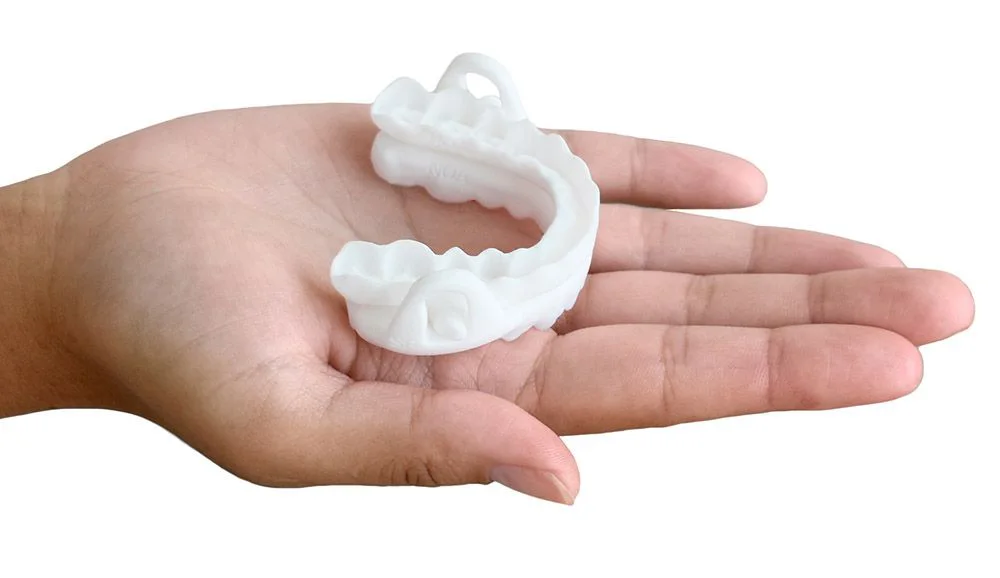
Discreet alternative to CPAP for snoring and mild to moderate apnea.
In these situations, a mandibular advancement device (MAD) is often a game-changer. It is a small, custom-made oral appliance, worn at night like a mouthguard. It is silent, compact (no tubes, mask, or power supply), and its regular use often leads to better compliance; it is effective for snoring and mild to moderate apnea, and can also be considered for some severe apnea cases if CPAP is not tolerated, after specialist consultation.
How Does It Work?
During sleep, the tongue and soft palate tend to fall back, narrowing the airway and leading to drops in blood oxygen. The oral appliance keeps the lower jaw slightly forward: it pulls the base of the tongue and soft tissues forward, increasing airway space in multiple directions and reducing their tendency to collapse. Result: air circulates better and blockage episodes decrease.
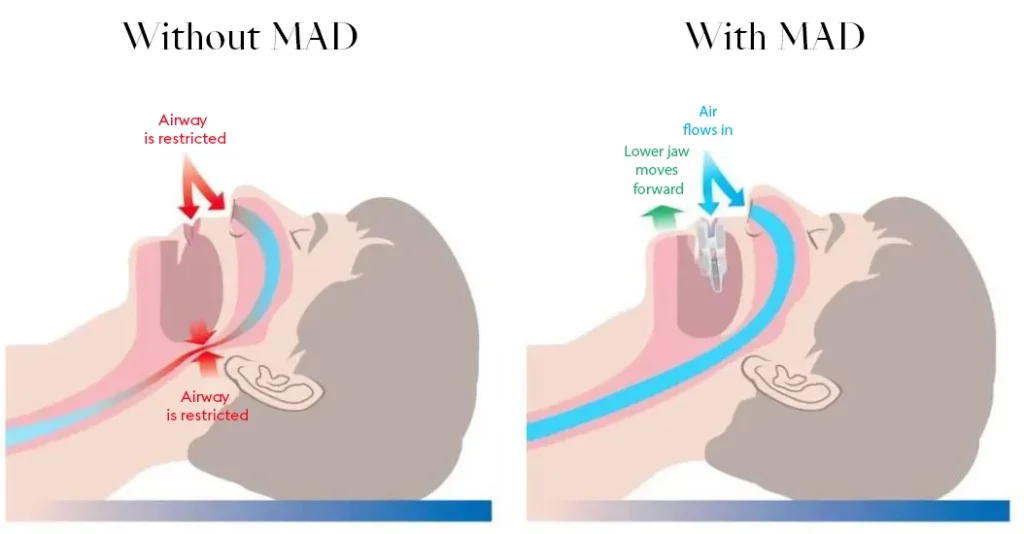
Is it Right for your Situation?
MAD is indicated for many people who snore or have mild to moderate apnea. It can also be offered in some more pronounced cases when CPAP is not tolerated, based on a joint decision with a sleep specialist. It also works for “primary snoring,” meaning snoring without associated apnea.
Where to Start? Our Treatment Pathway in Geneva
Formal apnea diagnosis is made by a specialist physician, but we can guide you step by step. During an initial consultation at DentalGeneva, Dr. Daniil Klimovich conducts a detailed interview and an oral examination, using validated questionnaires to screen for OSA risk and identify anatomical factors that disrupt sleep. In cases of high suspicion, we coordinate a sleep study (polysomnography or home test) with a trusted specialist. Once the diagnosis is made, we design a custom oral appliance, adapted to your occlusion, jaw movements, and comfort, with regular check-ups to fine-tune settings and ensure long-term results.
What’s Next?
An adaptation period is normal: a few nights to a few weeks are usually enough to find the right settings. Follow-up visits serve to adjust the position (titration), check comfort, and ensure long-term effectiveness. The goal is simple: calmer nights, better quality sleep, and a device designed to last.
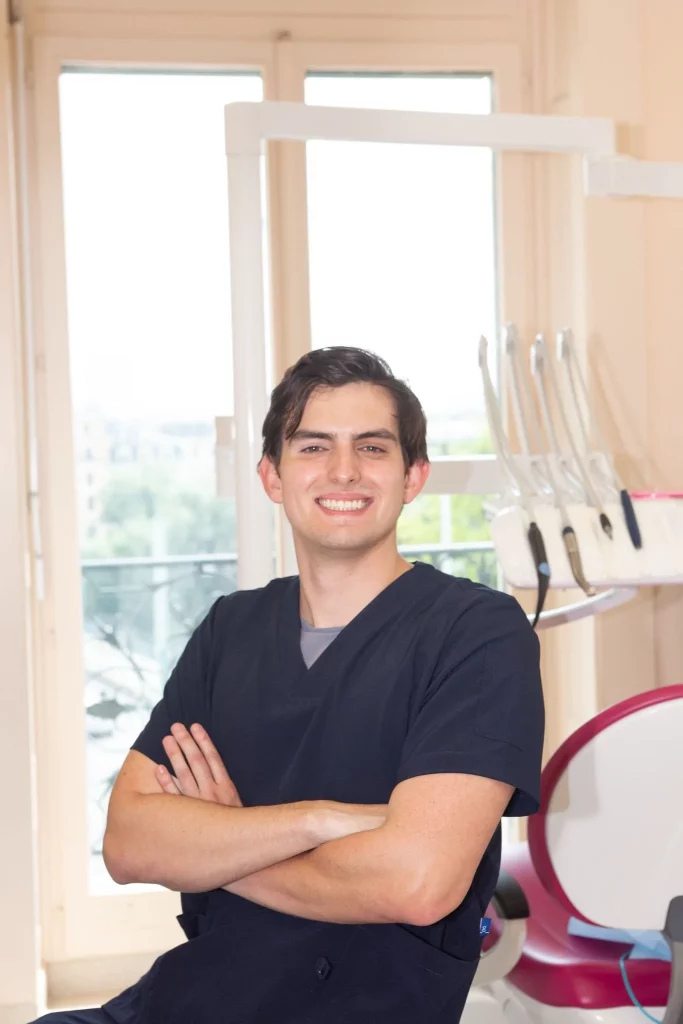
Book an Appointment:
If you are interested in this treatment, you can directly book a consultation with Dr. Daniil Klimovich.
